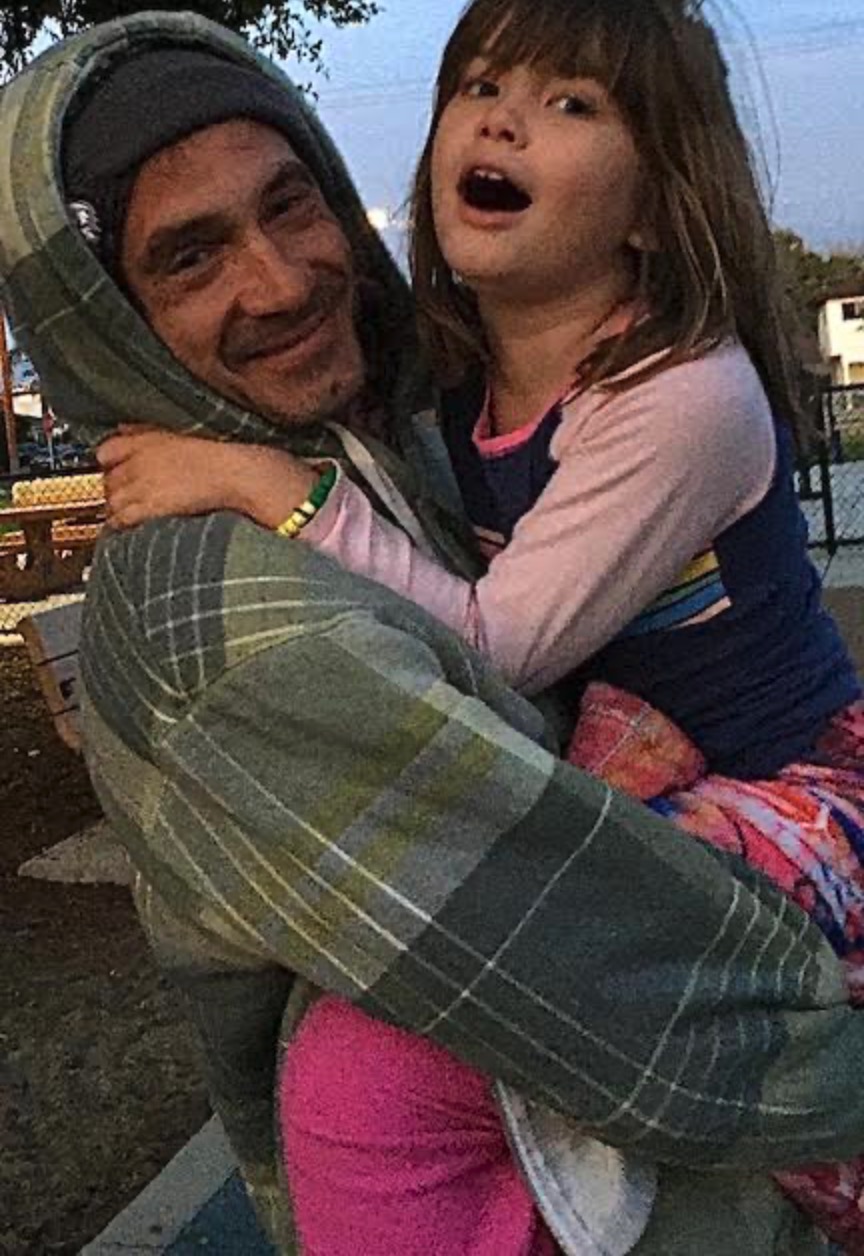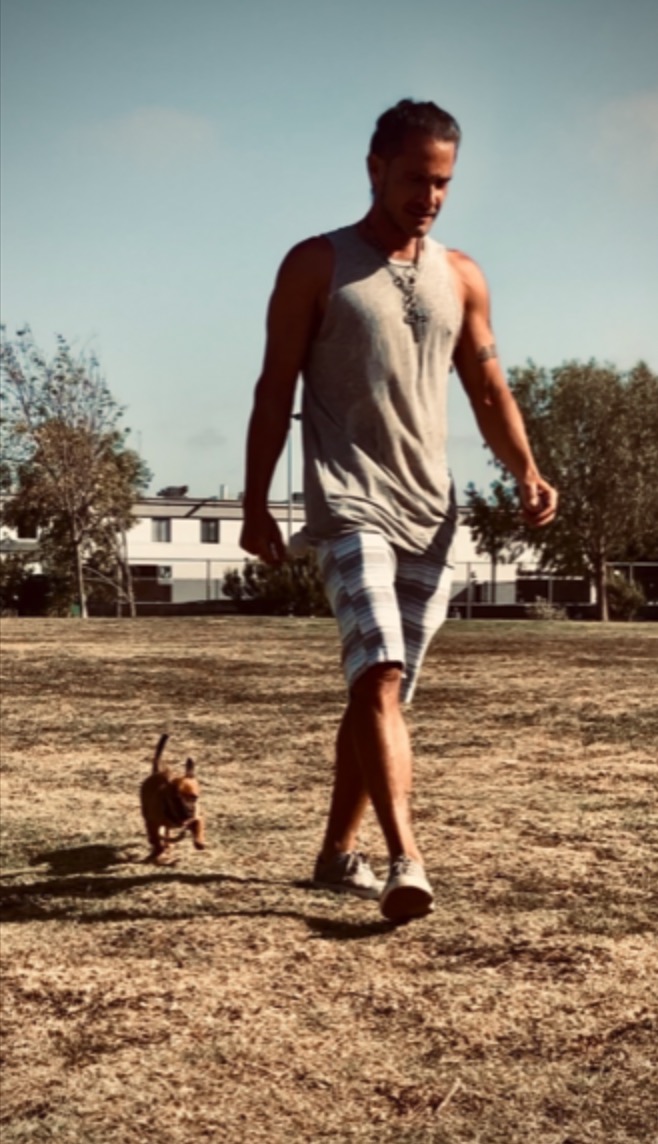Comments
MENTAL HEALTH - As someone with a brother with mental illness, I'm saddened by the widespread lack of awareness in the general public. In a way, though, I am relieved, because it means that there are relatively few who have had to endure the decades of misery, loving someone so desperately ill - in a system designed to keep them that way. Anyone who has suffered with a loved one so sick for so long knows beyond a shadow of a doubt that these people are not "choosing" to live this way. We, the family members, are among the true experts in the field.
I write this not just as the sister of an amazing man who deserves our help and respect, but also as a genetic victim to the same awful disease. Twenty-eight years ago, I was hospitalized, held, and medicated for a severe Bipolar1 manic episode. Bipolar1 differs from the more common Bipolar2 in its severity and psychotic symptoms. For weeks, and months, I had barely slept, barely eaten. I was brimming with energy, erratic thoughts, and extreme mood swings from contagious optimism to the darkest despair. It was the culmination of years of this disorder slowly working its way to my grand finale. I was younger, and the system back then was better, in a time before hospital staff were stretched to their breaking point by the mental health crisis we see everywhere today. With medicine, follow up care, and strong support both from my family and health care workers, I crawled my way out of the fog. For the next 28 years, though, I hid my history in shame, terrified of losing jobs and relationships and maybe, again, my mind. I so rigidly kept track of myself that I really didn't notice what was happening to my brother.

(Ryan, meeting my daughter again for the first time after coming out of the mania and getting off the streets.)
Ryan had a rocky, but brilliant life and career. Fluent in French, graduating top of his class as a chef from the Cordon Bleu in Paris, with a second degree in Hotel Restaurant management, he managed HRs in China and Switzerland. He had by all accounts an amazing future ahead of him. Magnetically charismatic, electric with energy, it seemed as if he succeeded at everything he tried. But he did it all in pain, hiding severe mood swings that started in adolescence; bursts of intense energy, followed by deep, suicidal depressions. Big cracks in the facade began to appear when he lost an amazing job here in Los Angeles after a "nervous breakdown", as he called it, in 2015. Concerned neighbors called police to do a wellness check on him. Paranoid, he fled, was chased, apprehended, gravely hurt, then booked in LA County jail. The charge was for assault of one of the officers who had come to his home - for which he faced 8 years. (He bit the man's ankle while restrained on the ground). He should have been taken to a hospital. Instead, he sat sleepless in isolation, sicker every day, on the 6th floor for a month while his family tried to raise money for an attorney and his defense. 20,000 dollars and 15 minutes of the lawyer's time later, the judge gave him probation and threw the case out of court.
It all went downhill from there. As his family, we did our best to support and encourage him. With his laughable criminal history, this man with a degree from the best cooking school in the world could no longer qualify to deliver a pizza. He couldn't rent an apartment, couldn't get a credit card. Couldn't get a break. We believed his take on it - even I believed his take on it - that he just needed time and stability, patience and understanding. He, and we, were utterly convinced it really was just a "nervous breakdown." It never, ever occurred to me that he might have what I had all those years ago - a genetic disorder. It had been so long since my episode, and I had spent so many years focusing on myself - I just never connected the dots. We did the best we could to keep a roof over his head. He lived with me. He lived with others. He lived alone in hostels. No matter where he lived, it was chaos. He lived in 19 different places before another massive episode in 2021 left us stunned at the realization - and out of options. This time I made the call - begging them to come, to be gentle, to take him to a hospital, as he needed medical intervention, not jail. Despite my submission to the hospital of hundreds of pieces of documentation, records, photos, emails, text messages, voice mails, videos, police reports, witness reports... The hospital released him, on his own recognizance, unmedicated, seven days later without notifying us. My painstaking documentation begging, pleading with them to hold him for his own safety and that of others -- bought us only four extra days beyond the standard 72 hour hold. My brother became a missing person and a statistic. Another homeless face on the streets of LA.
"Mental illness" is a vague and ambiguous title, diluting what this really is - brain disease. Well intended and designed to be respectful, the term leaves miles of space open to interpretation - allowing many to view this not just as a physiological disease or disorder that (God forbid) could affect anyone of us - but also on some level as a weakness of character - something far easier to accept: That sort of thing doesn't happen to tough, strong willed people with a good moral compass. The term "mental" allows those without experience to distance the condition from its true physical origins. It's "mental". "It's just in his head" (as if that is separate from the body). "He really just needs to get his act together". "He is choosing this". "He wants to live this way". "To Hell with him if he won't take medicine to help himself".
This is brain disease. Physical in nature. Not similar to - but EXACTLY like - any other physical ailment in the body. Unlike those with other diseases, people with brain disease refuse medicine because their brain - the organ needed to make sense of things - is sick and DOES NOT KNOW IT. In the most serious disorders, most commonly resulting in homelessness, the brain has what is called Anosognosia - commonly known as "lack of insight." In layman's terms - they are utterly and completely unaware anything is wrong with them. They do, however, have a strong sense that something is very wrong with everyone else, including that a giant conspiracy exists among others to restrain, detain, and harm them. This is because (spoiler alert) those brains, which are the organs of the body responsible for making sense of our world ---- are malfunctioning, misfiring and not working properly. Much like heart disease without medicine. A diseased heart would not function well for long without medicine. Good thing the heart disease patient can voice his needs with his healthy brain. Too bad, brain disease patient. Your brain isn't able to voice its needs at this time. Unlike heart disease, which people have endless compassion for, brain disease is mocked, hated, feared, and utterly misunderstood.
No one wants to live in a society where people are forced against their will. What is not understood, however, is that the will isn't working in brain disease. The brain is broken. The person doesn't know they are so sick. They instead believe the rest of the world has gone crazy. They become extremely paranoid, convinced others are out to get them. No small surprise that they would refuse medicine from someone in a uniform. Over seven years my brother's mind took him hostage, utterly destroying his thought patterns, sleep patterns, eating patterns and life. He lost an incredible culinary career, his friends, his girlfriend, his dog, his car, his home, his credit, and his mind. This was not "his choice." Housing First is a well-intended failure. My brother was given 19 Housing Firsts over the last several years before ending up homeless regardless. Housing First didn't work because, in the case of serious illness or addiction, Housing First DOESN'T WORK. It simply gives someone who needs medicine first, a roof under which to deteriorate further. And for the addict, it gives them a roof under which to fall deeper into the hole of addiction. For those with both problems, it is a fast track to a darker hell. To those who suggest the Housing First model works for those with severe mental illness, I suggest they tell a heart disease patient with a history of 5 to 55 major heart attacks that all he needs is a calm, stress free living environment and he'll be just fine. Housing First couldn't save my brother. And it won't save yours.
Current laws do not work. They are cruel and inhumane. They ruin a person's health, career, credit, and future at breathtaking speed the moment the hospital releases them untreated. If you are lucky enough to have family who stands by you, the system will ruin their lives as well. Anyone who thinks people with serious mental illness should be left alone to "choose" how they want to live, simply do not understand the science of brain disease. Family members, scientists, doctors, nurses, police officers, social workers and emergency responders will all tell you the same: there isn't a shadow of a doubt that these people desperately need intervention against their will. They just simply cannot do anything because their hands are tied. The law is the law. And so, beautiful human beings are left to die a slow and torturous death of ever evolving madness on the streets of LA.

This is my brother today. The bravest man I ever met. In spite of - not thanks to - the current laws - my brother survived.
After decades of pain and a year of trauma on the streets, he came slowly out of the mania and finally asked for the medicine he should have been forced to take from the beginning. Had he been intervened on medically from the start of the episode, his brain function would have normalized within a month. Untreated, manic episodes get more severe, more treatment resistant and last longer over time. He is now left to deal with the mountainous fallout of this system's utter destruction of his life, starting from scratch. Thank God he had my mother and I. Many others are not so lucky. Public compassion, awareness, and education - are essential - for him to move this mountain now and get to the other side.
It shouldn't have happened this way. He, and tens of thousands of others, incarcerated or still on the streets, are begging us for help. They just cannot tell us.
THE MENTAL HEALTH LAWS MUST CHANGE - And so too the terms we use to describe their victims.
(Maeve McGrath is an illustrator and animator in Los Angeles and a mental health law reform advocate. She has written extensive articles and appeared on national television with her brother Ryan to raise awareness of the need for intervention and mental health law reform.)















